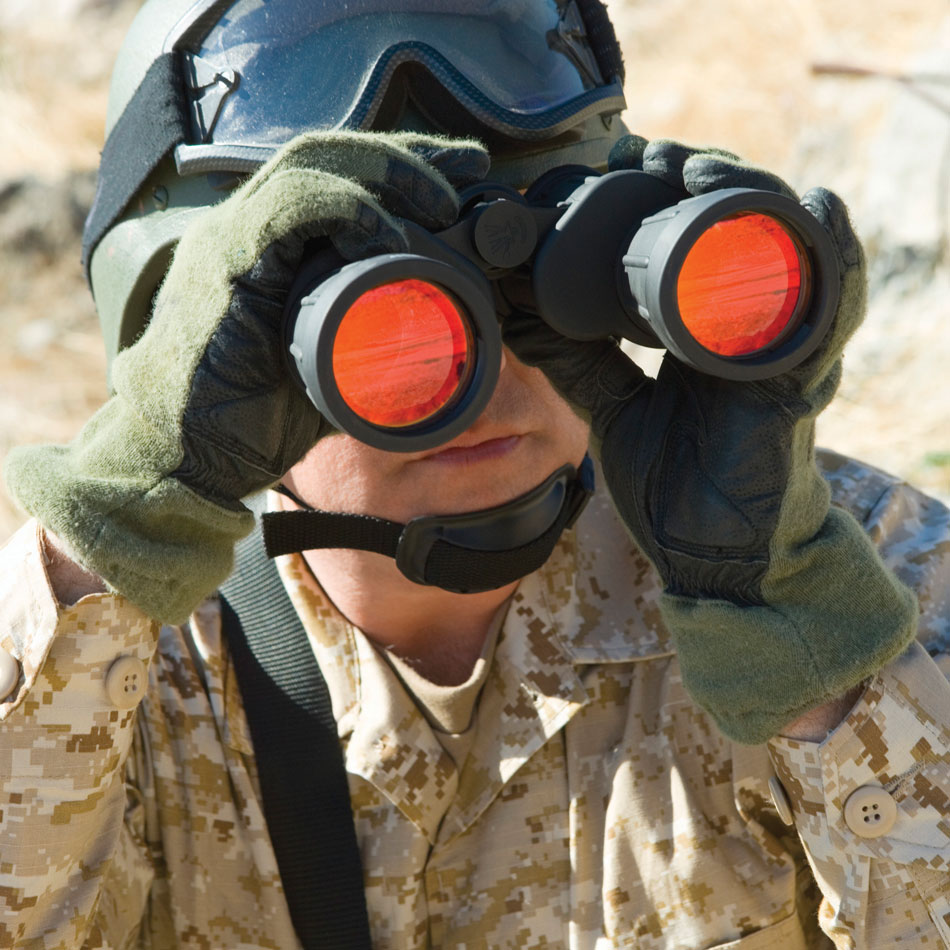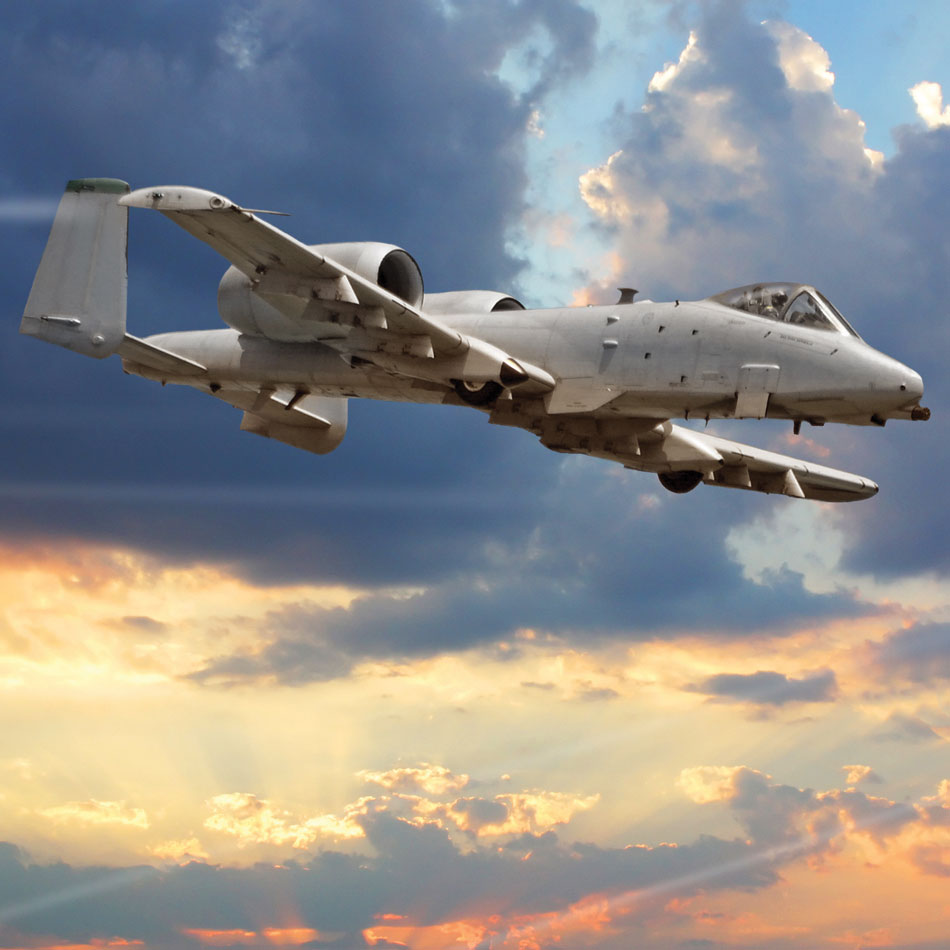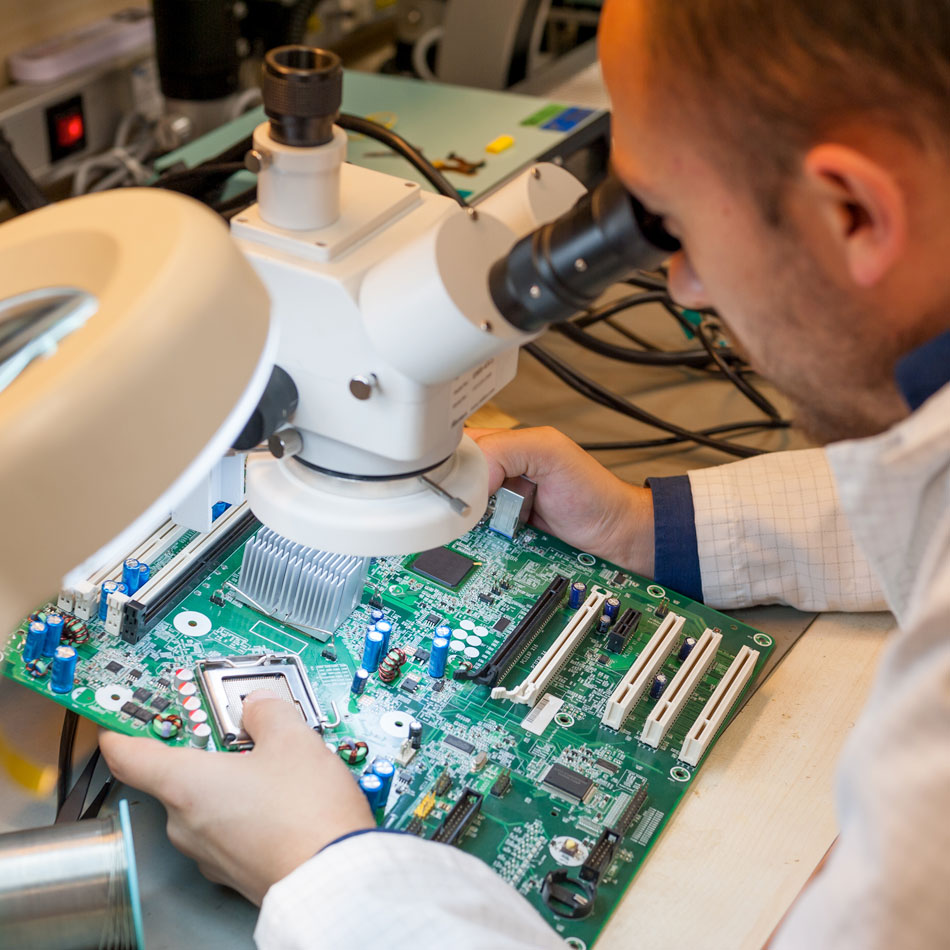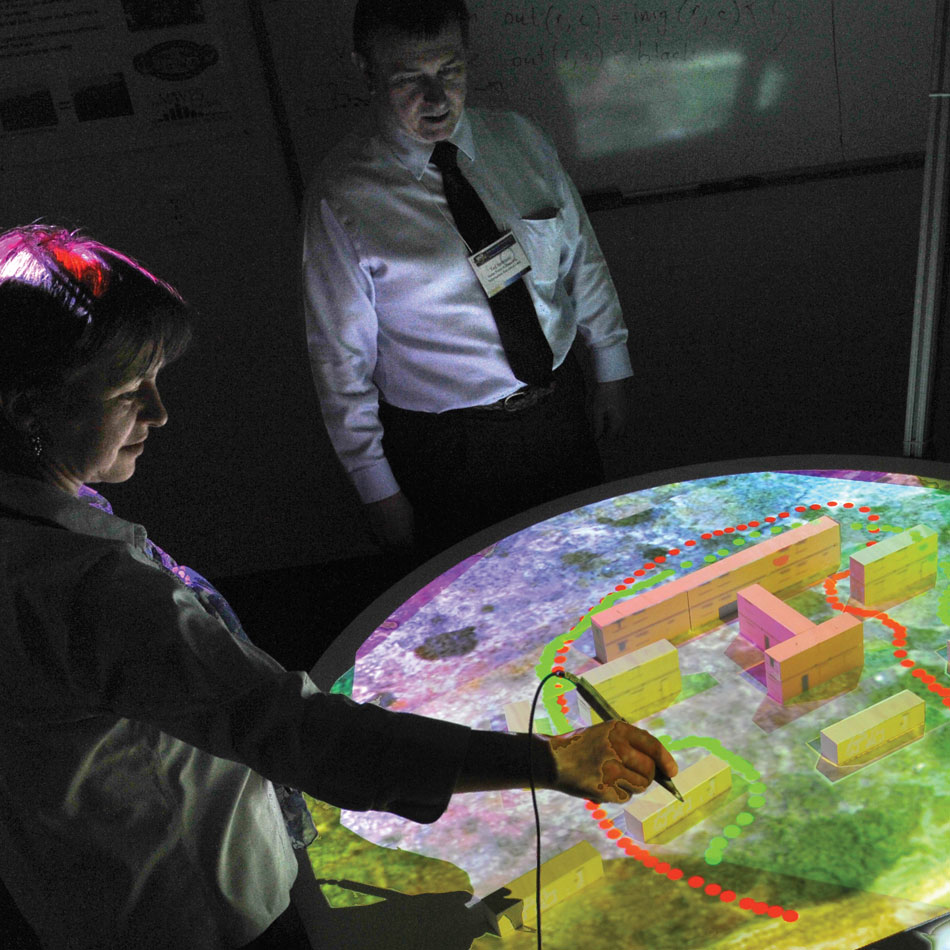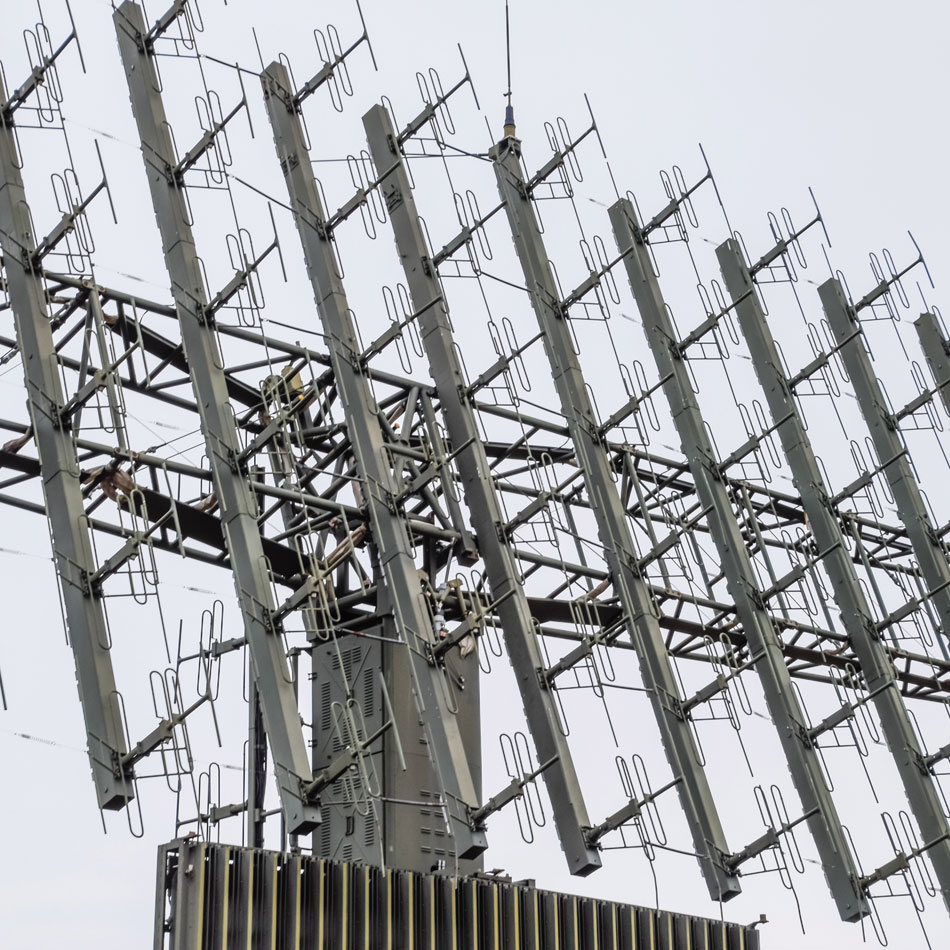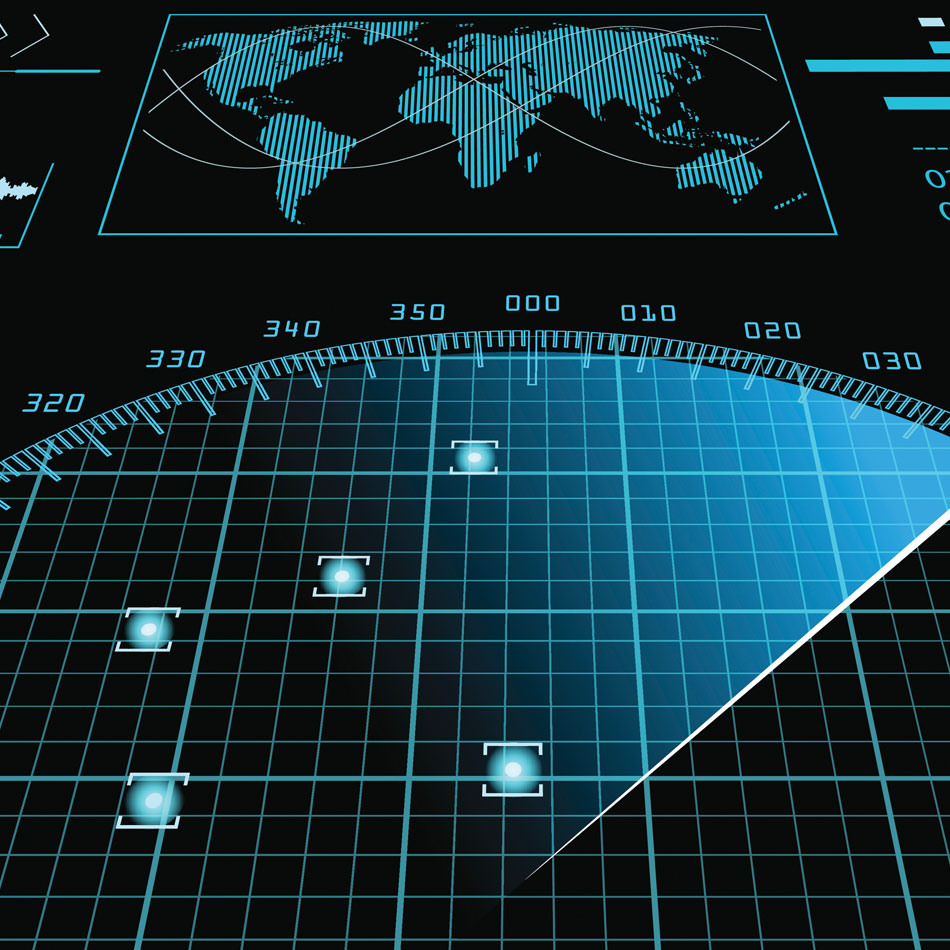Radar Systems Certificate
- Overview
- Program Requirements
- Why Choose a Certificate?
Delivery Method
ClassroomProgram Administrator
Contact for program-related questions Bill Holm, Ph.D.Radar Systems Certificate
Master the ins and outs of a wide array of radar systems, including how to use them, their principles, and applications. Completing the Radar Systems Certificate will teach you how to understand the concepts behind the design of various systems including their limitations and advantages. Plus you'll learn about the latest developments in radar technology and design.
Program Requirements
Certificate Requirements
- Effective January 2015, courses can only be applied to one certificate. If a core course for a certificate has already been applied to a previously-awarded certificate, then an additional elective must be taken.
- Certificates must be completed within 6 years; courses completed more than 6 years ago may not be applied toward certificate.
- All courses applied to a certificate program must be taken from Georgia Tech.
- This certificate does not require an application.
How it works
Your path to achievement is easy! Most certificate courses are offered in classroom locations around the U.S. You can also inquire about training at your location.
Cost
- Course load determines the cost of a certificate program.
- Calculate your total by identifying the courses needed and tallying individual course fees. Some programs offer discounts for course bundling.
Registration
- Select a certificate program, review the requirements, and determine your timeline for completion.
- Add courses to your shopping cart for purchase as you are ready to take them, or as a bundle if desired.
- Proceed to checkout to complete your registration. We accept multiple forms of payment including credit card, purchase order, and a private loan (upon request).
Completion
- Certificates must be completed within six years.
- After successful completion of most individual courses, a Certificate of Course Completion will be sent.
- After successful completion of all required courses, request a transcript and program certificate audit.
- Upon verification, GTPE will email your transcript and mail your Certificate of Program Completion. Some programs host a certificate award ceremony during the final course.
Once you earn your Georgia Tech Program Certificate, tout your success on your resume and LinkedIn profile, share with your employer, and celebrate an important career growth achievement!
Why Choose a Certificate?
Professional Certificates are ideal for developing new skills and building deep expertise in a specialized area to update your professional profile, advance your career, or broaden your knowledge base.
Certificates are an “anytime” credential
Start anytime - after graduation or later in your career - and gain deeper know-how in a specific area without the commitment to a degree.
Certificates demonstrate commitment
The dedication of time to earn a certificate demonstrates that you are committed to achieving a higher standard of professional knowledge in your industry.
Certificates provide immediate “ROE”
Georgia Tech learners master real-world skills and apply them to their career the day after completion.
Certificates stand out on your resume
A Georgia Tech credential carries the professional weight to give you a competitive edge.
Who Should Attend
This certificate is designed for engineers, scientists, radar technicians, pilots, police officers, procurement officers and technical managers from industry, government, and educational institutions.

How You Will Benefit
- Establish an expansive expertise of a range of radar systems including the latest research and findings.
- Increase the productivity of yourself and your team to gain a competitive edge in your industry.
- Establish and deepen contacts with peers and others throughout industry and government.
- Earn a recognized industry credential.
-
Grow Your Professional Network
-
Taught by Experts in the Field
Course Offerings
Participants with no radar background should take DEF 3501P first.
Path 1:
Principles of Modern Radar (DEF 3502P)
Path 2:
Principles of Modern Radar: Basic Concepts (DEF 3502V) AND Principles of Modern Radar: Advanced Techniques, Systems and Applications (DEF 3502W)
Path 3:
Basic Radar Concepts (DEF 3501P) AND Principles of Modern Radar: Advanced Techniques, Systems and Applications (DEF 3502W)
In this course, you will gain an understanding of the fundamental principles of modern radar technology in simple, easy-to-understand terms. You will then be able to converse comfortably about radar topics with a radar specialist and also discover and learn to appreciate the problems a radar…
View Course Details »-
Jul 14, 2026 - Jul 16, 2026Register By Apr 29, 2026Las Vegas, NV$1,895
-
Nov 17, 2026 - Nov 19, 2026Register By Sep 2, 2026Lake Buena Vista, FL$1,895
Learn radar principles, systems, techniques, phenomenology, and the basics of radar technology. Get up-to-date examples of modern radar systems, including microwave and millimeter-wave, and their applications. Understand antennas, transmitters, receivers, signal processors, clutter and noise,…
View Course Details »-
Jun 1, 2026 - Jun 5, 2026Register By May 28, 2026Las Vegas, NV$2,095
-
Oct 26, 2026 - Oct 30, 2026Register By Oct 22, 2026Atlanta, GA$2,095
Get up-to-date examples of modern radar systems and techniques, including microwave and millimeter-wave, and their applications.
View Course Details »There are no sessions scheduled at this time. Please check again later.
Learn basic radar principles, techniques, phenomenology and the basics of radar technology. Understand antennas, transmitters, receivers, clutter and noise, detection, signal processing, waveform design, Doppler techniques, resolution, and multipath and reflectivity measurements.
View Course Details »There are no sessions scheduled at this time. Please check again later.
Active Electronically Scanned Arrays (AESAs) are becoming commonplace in airborne radar systems and present a new set of opportunities and challenges to the system engineer. This course will provide an overview of airborne AESA radar systems focusing on AESA theory, technology, and practical…
View Course Details »There are no sessions scheduled at this time. Please check again later.
In this course, you will receive an overview of phased array radar system requirements and operation, which are reinforced by application examples. You'll have the opportunity to examine major subsystems and associated technologies with specialists in those areas. There will be a focus on…
View Course Details »-
Apr 21, 2026 - Apr 23, 2026Register By Apr 16, 2026Atlanta, GA$1,995
In this Phased Array Radar Systems class, you will receive an overview of phased array radar system requirements and operation, which are reinforced by application examples. You'll have the opportunity to examine major subsystems and associated technologies with specialists in those areas…
View Course Details »There are no sessions scheduled at this time. Please check again later.
Active Electronically Scanned Arrays (AESAs) are becoming commonplace in airborne radar systems and present a new set of opportunities and challenges to the system engineer. This course will provide an overview of airborne AESA radar systems focusing on AESA theory, technology, and practical…
View Course Details »There are no sessions scheduled at this time. Please check again later.
This course provides learners with an understanding of concepts related to the collection and analysis of radar signals. Topics include an overview of the collection process, collection system architectures, tactical actions, and analysis of radar signals. You'll gain an understanding of key…
View Course Details »There are no sessions scheduled at this time. Please check again later.
Looking to understand antenna basics? This Basic Antenna Concepts course provides an understanding of the fundamental properties, operations, utilizations, and applications of antennas. You will focus on intuitive physical explanations and laboratory demonstrations that will clearly define…
View Course Details »-
Jun 23, 2026 - Jun 25, 2026Register By Apr 8, 2026Las Vegas, NV$2,595
-
Sep 15, 2026 - Sep 17, 2026Register By Jul 2, 2026Lake Buena Vista, FL$2,495
-
Dec 8, 2026 - Dec 10, 2026Register By Dec 3, 2026Online$1,995
Build an intuitive understanding of how radio frequency printed circuits work by taking this Basic Concepts of RF Printed Circuits course. You will explore the basics of electromagnetic fields and power transfer, printed circuit transmission and component topologies, and passive and active…
View Course Details »-
Apr 7, 2026 - Apr 9, 2026Register By Apr 2, 2026San Diego, CA$2,595
The course, Fundamentals of Space-Based Radar, explores theory, applications, and orbital considerations for both synthetic aperture radar and moving target indication modes. Engineers, scientists, and managers working with space-based radar will benefit by examining space-based radar…
View Course Details »There are no sessions scheduled at this time. Please check again later.
In this course, you will gain an understanding of the fundamental principles of modern radar technology in simple, easy-to-understand terms. You will then be able to converse comfortably about radar topics with a radar specialist and also discover and learn to appreciate the problems a radar…
View Course Details »-
Jul 14, 2026 - Jul 16, 2026Register By Apr 29, 2026Las Vegas, NV$1,895
-
Nov 17, 2026 - Nov 19, 2026Register By Sep 2, 2026Lake Buena Vista, FL$1,895
A foundational course, Basic RF Electronic Electromagnetic Warfare Concepts, provides an understanding of the principles and operation of electromagnetic warfare (EW) systems used by today’s military. The course emphasizes the operation of radar-controlled weapon systems and the EW systems…
View Course Details »-
Apr 7, 2026 - Apr 9, 2026Register By Mar 31, 2026Atlanta, GA$1,595
-
Jun 2, 2026 - Jun 4, 2026Register By May 26, 2026Las Vegas, NV$1,595
-
Sep 1, 2026 - Sep 3, 2026Register By Aug 27, 2026Shalimar, FL$1,595
-
Nov 17, 2026 - Nov 19, 2026Register By Nov 10, 2026Atlanta, GA$1,595
Whether you are a designer new to the radio-frequency (RF) field, a seasoned designer looking for a refresher course, or an engineer or scientist engaged in RF engineering in search of practical skills developing prototype hardware, this introductory-level course is a great option. It provides…
View Course Details »There are no sessions scheduled at this time. Please check again later.
Data analysis in Electromagnetic Warfare (EW) depends on a set of skills and tools with an understanding of EW-specific challenges. Assuming no prior knowledge, this course begins with basic analytical methods and strategies for reading and plotting data, and proceeds to more advanced…
View Course Details »-
Jun 9, 2026 - Jun 10, 2026Register By Jun 8, 2026Warner Robins, GA$1,595
This course is a thorough exploration for engineers and scientists of the foundational signal processing methods for interference suppression, detection, imaging, and tracking that are at the core of most modern radar systems. It also provides a solid base for studying advanced techniques,…
View Course Details »-
Jun 22, 2026 - Jun 25, 2026Register By Apr 8, 2026Las Vegas, NV$2,895
-
Sep 21, 2026 - Sep 24, 2026Register By Sep 4, 2026Atlanta, GA$2,895
Synthetic aperture radar (SAR) imaging is a mature technology for remote sensing and tactical and strategic surveillance in both commercial and defense applications because of its ability to combine fine-resolution two- and three-dimensional mapping with all-weather visibility. New radar…
View Course Details »-
Apr 6, 2026 - Apr 10, 2026Register By Apr 2, 2026Online$2,595
Phased array antennas are key, yet complicated sub-systems in modern radar, electronic warfare, and communications systems. Computer simulation of phased arrays is simple to a first order, using sinc functions or basic Fourier transforms. Simple models leave out important details which are the…
View Course Details »-
May 5, 2026 - May 7, 2026Register By Apr 27, 2026Online$1,995
-
Nov 3, 2026 - Nov 5, 2026Register By Oct 29, 2026Online$1,995
In the Modeling and Simulation of Radar Systems course, you will develop techniques for modeling and simulation (M&S) of modern radars to apply to radar systems design, analysis, test and evaluation, and performance assessment. Begin with the radar equation, then extend M&S to introduce…
View Course Details »There are no sessions scheduled at this time. Please check again later.
Radio-frequency (RF) circuits come in a wide variety of architectures, performing a myriad of functions over a very wide possible range of frequencies. No single technique serves all of the needs of all of the possible circuits. Do you need to perform modeling and simulation of RF circuits,…
View Course Details »There are no sessions scheduled at this time. Please check again later.
The Modern Electronic and Digital Scanned Array Antennas course provides an in-depth understanding of the physics and implementation of a wide range of array antennas. You will learn about the basics of array theory, simulation approaches, the impact of real-world errors and methods for array…
View Course Details »-
Apr 27, 2026 - May 1, 2026Register By Apr 13, 2026Colorado Springs, CO$2,795
-
Aug 10, 2026 - Aug 14, 2026Register By May 15, 2026Las Vegas, NV$2,795
-
Nov 16, 2026 - Nov 20, 2026Register By Nov 9, 2026Lake Buena Vista, FL$2,795
In this course, you will receive an overview of phased array radar system requirements and operation, which are reinforced by application examples. You'll have the opportunity to examine major subsystems and associated technologies with specialists in those areas. There will be a focus on…
View Course Details »-
Apr 21, 2026 - Apr 23, 2026Register By Apr 16, 2026Atlanta, GA$1,995
In this Phased Array Radar Systems class, you will receive an overview of phased array radar system requirements and operation, which are reinforced by application examples. You'll have the opportunity to examine major subsystems and associated technologies with specialists in those areas…
View Course Details »There are no sessions scheduled at this time. Please check again later.
The Principles of Millimeter Wave Radar Electronic Warfare course will begin by introducing you to performance prediction, phenomenology, hardware, and systems unique to Millimeter Wave (MMW) Radar. A refresher on electronic warfare basics will be provided, but some prior knowledge is expected…
View Course Details »There are no sessions scheduled at this time. Please check again later.
The Principles of Pulse-Doppler Radar course provides a fundamental understanding of pulse-Doppler radar and how it is used to detect moving targets in the presence of background clutter. You'll learn about radar moving target indicator (MTI) and Doppler processing; high, medium, and low…
View Course Details »There are no sessions scheduled at this time. Please check again later.
It's fundamental: learn the basics of electronic protection (EP) concepts, or electronic counter-countermeasures. This Principles of Radar Electronic Protection course includes electronic warfare concepts, noise jamming, range/velocity deception, and on-board and off-board angle deception…
View Course Details »There are no sessions scheduled at this time. Please check again later.
In this Radar Performance: Principles and Limitations course, you will review theory of coherent radar systems and then explore performance limitations relative to an ideal radar system. Examine radar operation at the introductory level for several diverse types of coherent radar systems…
View Course Details »There are no sessions scheduled at this time. Please check again later.
Become knowledgeable in the implementation of all major radar software functions — front-end and back-end — and the process for developing the software required for an operational system. Obtain a good understanding of the history of radar software technology and how it applies to developing a…
View Course Details »There are no sessions scheduled at this time. Please check again later.
Gain the ability to perform the systems engineering functions required to build modern radar systems and to upgrade legacy systems. This course emphasizes proven processes and toolsets for clearly establishing radar mission goals and requirements, identifying radar subsystems and components,…
View Course Details »There are no sessions scheduled at this time. Please check again later.
In this course, you will gain an understanding of radar waveforms and the tools necessary to analyze, design, and select them for particular applications. You will examine waveform properties using graphics, equations, demonstrations, and an interactive software tool; get insight into…
View Course Details »There are no sessions scheduled at this time. Please check again later.
The course, Space-Based Radar, explores theory, applications, and orbital considerations for both synthetic aperture radar and moving target indication modes. Engineers, scientists, and managers working with space-based radar will benefit by examining space-based radar technology issues,…
View Course Details »There are no sessions scheduled at this time. Please check again later.
In the Test and Evaluation of RF Systems course, you will get to know the basics of radio-frequency (RF) circuits and systems performance that drive test requirements. You’ll discover the requirements for testing RF circuits and systems for radar, communications, and electronic warfare systems…
View Course Details »-
Mar 17, 2026 - Mar 19, 2026Register By Mar 12, 2026San Diego, CA$2,695
-
Aug 11, 2026 - Aug 13, 2026Register By May 15, 2026Las Vegas, NV$2,695
-
Nov 17, 2026 - Nov 19, 2026Register By Nov 9, 2026Lake Buena Vista, FL$2,695
The course covers the theory and design of modern ground-based air defense radar system. The course specifically addresses the transmitter, antenna, receiver, signal and data processors, and electronic protection techniques as well as full radar systems such as air surveillance radars, target…
View Course Details »-
May 4, 2026 - May 8, 2026Register By Apr 24, 2026Atlanta, GA$2,095
During this Transmit/Receive Modules for Phased Array Radar course, you will gain an in-depth look at the hardware that comprises state-of-the-art transmit/receive (T/R) modules. Explore T/R module requirements, module design, hybrid and monolithic microwave integrated circuits, thermal…
View Course Details »-
Jul 14, 2026 - Jul 16, 2026Register By Apr 29, 2026Las Vegas, NV$2,195
The following courses are no longer offered but may still be applied if completed within the six-year rule:
- Basic Airborne Fire Control Systems (DEF 1001P)
- Basic Radar Signal Processing Concepts (DEF 3540P)
- Phased Array Antennas and Adaptive Techniques (DEF 1504P)
- Principles of Continuous Wave Radar (DEF 3508P)
- Test and Evaluation of RF Defense Electronic Systems (DEF 5001P)
Related Certificates




